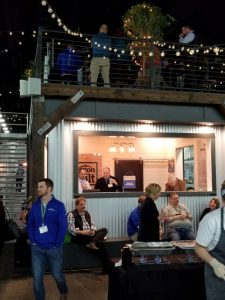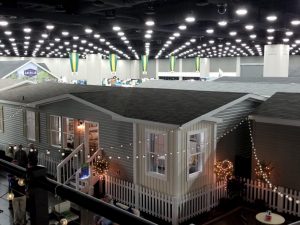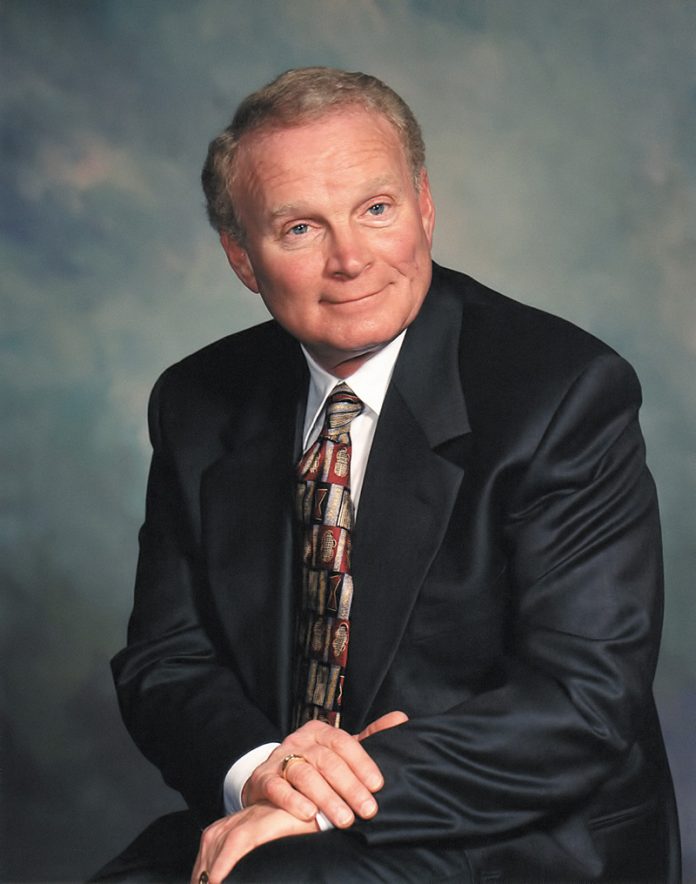Founder of Show Ways Unlimited Planned and Organized Hundreds of Shows in His 50 Years in Manufactured Housing
Dennis Hill, with 50 years in manufactured housing, is the talent behind Show Ways Unlimited and the hundreds of manufactured housing industry trade shows he and his team have put on.
Though many in the industry may believe Hill gained his start in the events business forming shows in Atlanta or Nashville, there is a deeper story yet to be told.
Prior to the start of his 50 years in manufactured housing, Hill was in graduate school at the University of Georgia. In 1966 he was swept up in the U.S. call for 50,000 troops to Vietnam. He trained and prepared but never was shipped out.
However, Hill was stationed at Fort Rucker, an 11-square-mile Army base in southeastern Alabama that The Smithsonian once referred to as “The Place Where Huey Pilots are Trained and Heroes are Made”.
“I was placed in special services and put in charge of conducting entertainment for troops at Fort Rucker,” Hill said.
He said it took a while to convince his superiors that they guys didn’t really want to spend their time playing checkers in the USO Club, and that there had to be some alternative yet safe ways to “blow off steam”.

Rockin’ Fort Rucker
“We put on Rock shows. And that’s what I think got me started on the idea of doing events,” Hill said. “The commanding officers were only convinced we’d made some good decisions when they saw 4,000 to 5,000 people out in the parade field being entertained.”
He programmed all phases for the entertainment section, and prior to the event had to recruit, evaluate and assemble the performers into bands that could hold the stage for an hour, if not more.
Yes, Dennis Hill organized “boy bands” for the troops, in a time some 20 years prior that was better known for the “British invasion”.
“The performers were local rock groups we assembled,” Hill said. “It was amazing to see something like that come together.”
In 2018, Dennis Hill of Show Ways Unlimited Celebrates 50 years in Manufactured Housing
When Hill was discharged, his father, who had been a manufacturer’s rep in the industry, was in poor health. His father asked that Dennis and his brother follow him in the manufactured housing business, but the brothers were ill-suited to work together.
Dennis Hill allowed his brother to take his father’s path, and Hill signed on with what was referred to as “the old Southeastern Manufactured Housing Institute”.
“The regional group was there for 10 years, and my original role was https://www.mhvillage.com/around member services and the service and supplier division,” Hill recalled. “Maybe it was a catch all for anything and everything.”
The trade show thing literally just popped up.
“My boss walked in and said ‘You’re going to do a trade show’ and I said ‘What is a trade show?’” Hill confessed. “I guess I figured it out.”
The Formative Years

Hill said there were many people around him – a 22-member board included – to help organize the management of a trade show – from earliest planning, through working with partners and vendors, to securing space and getting show homes organized and speakers assembled.
And it was an experience that got his blood flowing, he said. Doing shows was something akin to running a political campaign; many months of planning that must coalesce into action, an effective day or two that provide a collective experience for the whole.
He could run a weekend “how to” retreat on the topic these days, but in the early ’70s it was a rather undefined landscape. That’s the type of perspective that 50 years in manufactured housing offers.
“It was the wild and wooly days. The business almost allowed you to show up set up your display and leave it for the weekend. This happened one time and I called a guy to ask him how his show was and he responded ‘It was the best show ever’.”
“It changed, and I like to think I had a positive influence,” Hill said. “The shows were going to move forward, and they needed to be about more than partying and being out at night.
John Manley, a veteran in the industry and member of the RV/MH Hall of Fame, was there to help Hill in those formative years.
“His influence as a West Point graduate appealed to me, having just come out of the military,” Hill said. “In the morning, when I got chewed out for whatever, it didn’t really bother me because that’s just the way it worked.”
‘Industry Competition and Collaboration’
Hill started with the Atlanta show, which was outside at the farmers market. He said the industry was very competitive at the time, and lacked the undercurrent of cooperation seen today. The goal, Hill said, was to create something durable that allowed for industry competition and collaboration.
When Show Ways was organized in 1978, the trend went toward bringing shows inside, and creating professional presentations and talks. The trade shows could still be about selling products and having fun, but programs that advance the industry found a place as well.
“That was a big decision to make,” Hill said of starting Show Ways Unlimited. “Any time you start a business, it is a big deal. The number of shows I was doing at the time made me wonder if I could make it. But when I got underway, I realized I was reasonably good at it.”
All Those Shows
Shows for manufactured housing professionals were held in Kansas City, Mo., Charlotte, N.C., Atlanta, GA, Louisville, Ken., Tulsa, Okla., New Orleans, LA, Tunica, Miss., Omaha, Neb., Nashville, Tenn., and Atlantic City, N.J.
Tim DeWitt, former director of the MMHRVC, worked in collaboration with Dennis for a good portion of his 39 years in the business.
“He found a niche, and honed in on it. I think what’s made him as successful as he has been, is because when you’re in a state association it’s very helpful to be able to work with a private promoter who has more room to move and can make decisions to get something implemented a lot faster than you’d be able to working in public sphere.”
DeWitt recalls Hill as a true football nut, always wearing his Bulldogs ball cap during move-in days prior to a show.
“He was always a calming influence, and that’s important. He supported us in good times and bad, and we could rally around that,” DeWitt said.
Eventually, the Atlanta show grew up and moved to Nashville. It turned from an outdoor / indoor show, to a regional affair. The Nashville show was held at the Opryland hotel complex and outgrew that space, too. This resulted in the move to Tunica, Miss., which is where the show continues to be held each March.
Still ‘Crazy for That’ After 50 Years in Manufactured Housing
Today, The Louisville Show is the largest gathering of MH professionals in the Midwest, is sponsored by five state association, and boasts the largest collection of model homes displayed indoor anywhere in the United States. A record number of nearly 3,000 attendees are expected at this year’s show.
Dennis Hill’s own plaque at the RV/MH Hall of Fame, bestowed when he was inducted in 2004, reads: “He has brought hundreds of manufacturers together with thousands of retail centers for the betterment of the housing industry and has returned over $3.5 million to the state associations that sponsor the shows.”
In 1998, Hill also was named “Industry Person of the Year” by the industry publication The Journal.
Running shows and managing relationships within the manufactured housing industry has been a dynamic experience in recent decades. He continues to view his role as one of providing increased professionalism at each event.
“This is where we are today,” Hill said. “It’s important to recognize and understand how to trust, and how to get the job done just as you say you are going to get it done.
“I’ve hung in there with it, and I’m proud of that.”
Dennis has had a great “show site” office manager in Michele Middleton. She has played an integral part in assisting him at the show since the Nashville Show. To add to his Roswell office, Hill has had Trisha Ragoopath join on as his office manager about a year ago.
Still Work To Be Done
Though 2018 marks his 50 years in manufactured housing, Hill said he has plenty to contribute and makes no mention of retirement.
“Looking back, the trade show was definitely what I enjoyed the most,” he said. “I guess I’m crazy for that, but there’s something about it I really liked, and I still do.”
Hill continues to run his business from Roswell, Ga., and lives nearby in Alpharetta, Ga., with his wife Nancy. Married for 53 years, the couple has a daughter, Allison Sims, two grandchildren, Bri and Max Sims, and their wonderful family dog Beau.







